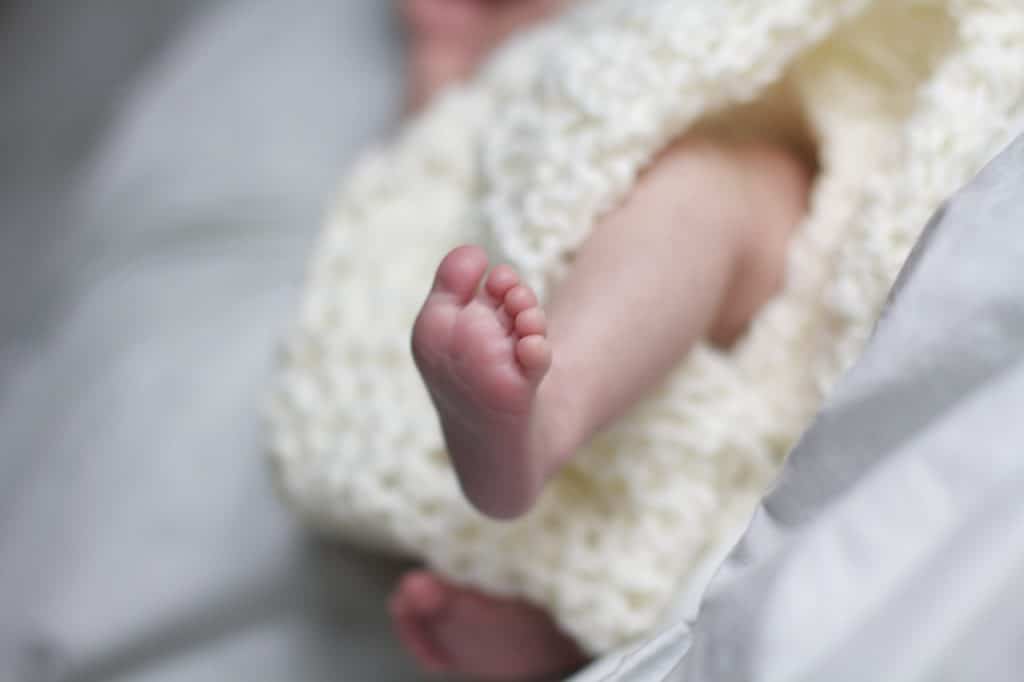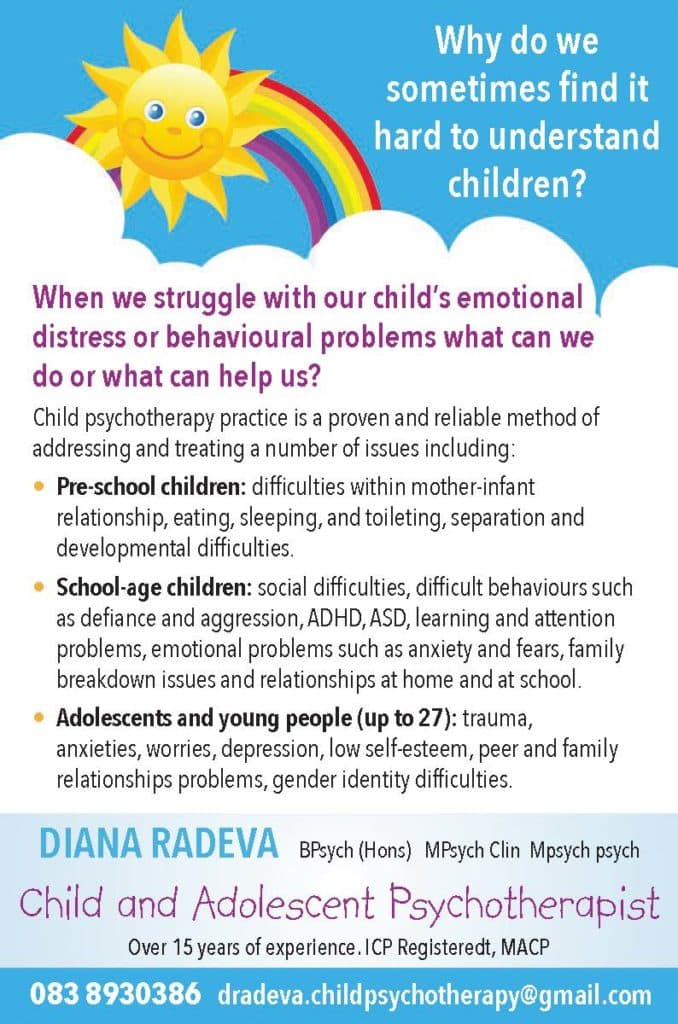
In this series of articles (‘Do we understand our child?’) Diana Radeva, child and adolescent psychotherapist sets out to consider the emotional life of children from birth onwards; and how relationships between children and parents evolve over time. It is a view of human growth, which recognises the importance of strong feelings experienced at each stage of development; thus offering ways that parents might find helpful when wanting to better understand their children’s growth.
This is the extraordinary story of the ‘ordinary development’ as seen and experienced by a parent and a child psychotherapist.
Birth is one of the great dramas of life. For both mother and child it is earth shattering, and we should not expect to get over it too quickly.
Many parents feel that during labour they ‘lose’ themselves, as if their ordinary experiences suddenly feel insignificant; they are shaken and shocked, not sure where they are any more, perhaps even not sure who they are. Perhaps it is in this state, we are closest to understanding something of what our baby might be experiencing. We might feel out of control during labour but it helps us see how out of control the baby might feel. From the warm, fluid environment of the womb, the baby is now in a cold, airy space; let alone the bodily sensations they have never known – the newness of the breath coming in and out of the lungs, the sounds of unmuffled voices, the shock of gravity, and of hunger. Most babies will show their shock straight away, crying out urgently as soon as they have breath in their lungs; others may take time in expressing a response, not ready to take in the newness of it all.
Parents often feel intuitively that a new baby will find comfort in things that are as close to being familiar as possible – keeping the baby warm, allowing them to hear the familiar voices that they will recognise from the womb, offering food as soon as the baby needs it.
This is being done intuitively by a mother who is closely connected and in tune with her baby. Even if a mother feels out of depth and unsure about what to do, her absorption in her baby and the intense feelings which that brings are part of what the baby needs, to feel less alone and un-integrated.

Bonding
A great deal has been said about the importance of bonding with our babies immediately after birth, and parents may begin to feel as if their child’s future happiness depends on that. Some people fear that certain interventions during labour will have interfered with the all-important first hours with the baby. Of course, some first hours might be more pleasurable than others, but there is no such thing as an absolute correlation between a positive labour and successful bonding.
We all bond with our babies in different ways. Whatever kind of labour we had, things might feel difficult and unreal in the first hours after the baby is born. We might feel weepy, exhausted and bewildered; our babies might cry at night, or appear sleepy and unresponsive. It is not uncommon that the experience of birth is a let down, and some people do feel angry, sad and regretful if things did not go according to plan.
All of this can be difficult and upsetting, and may well take time to heal. For some parents a difficult birth can exacerbate more deep-seeded issues in their lives, which might rise to the surface, making them feel much more vulnerable. But it is important to remember that in these early days nothing gets set in stone. It is possible to recover from difficult beginnings, and to help our babies recover as well. This can be the essence of ‘bonding’. Whether we have a wonderful home birth or an extended, painful labour, a traumatic experience of emergency intervention, an elective caesarean, or a quick and easy delivery, we have just as much potential to be good parents, to bond with our babies, to love them and look after them.
Early days: being beginners
Having finally met, most parents can’t take their eyes off their new baby and are totally absorbed, finding every detail wonderful and miraculous. A newborn baby is endlessly fascinating.
But sometimes, as new parents, we might feel under pressure to show that we are competent even if deep down we are feeling raw, emotional and out of our depth. Such expectations often come from within ourselves; not just from the outside world. Many women can find themselves trying to live up to an image of effortless motherhood. This is a losing battle. Ideals of motherhood can also get in the way of getting to know our baby, remaining as open as we can to what they are communicating and being as true to ourselves as we possibly can along the way.
Childbirth and early days are often much more messy than the parents could have imagined, both physically and emotionally. Both parents have to come to terms with their lives being changed completely, and this, combined with exhaustion, inevitably throws up new tensions and frictions between them. It seems inevitable that at some point the new parents will feel wobbly and scared, in between the more euphoric moments. And this is far from being a sign of failure.
First feeds: bottle or breast?
Most mothers have strong preconceptions about how they will feed their babies and what feeding will be like. But in reality often issues that arise around feeding are much more emotional and beyond our control that we could have envisaged.
Sometimes a mother can be amazed by her baby knowing what to do, latching on and sucking vigorously from day one. But some women who envisaged happily breastfeeding their babies are shocked to find that things are much more complicated, often for reasons that no one can fully explain. In some situations – when there are inverted or painful nipples, a baby who doesn’t latch on or a failure to gain weight – it can take a huge amount of perseverance and stamina to keep going until breastfeeding becomes enjoyable rather than stressful. For some women this can be soul- destroying and threaten their belief in themselves as ‘good’ mothers.
Breastfeeding is a very emotive issue and, like childbirth, provokes strong and passionate feelings about what is and what is not ‘natural’. This can add more pressure when a baby and mother are struggling to find what is best for them. It would certainly be easier to listen to ourselves and our babies, discovering what is best for us, if we didn’t feel so laden down with value judgements.
Breastfeeding can provide some of the most intimate and precious moments between a mother and a baby, offering a particular form of closeness and pleasure together. However, if breastfeeding doesn’t work out, this doesn’t mean that the mother and baby will be deprived of intimacy and closeness. From the baby’s perspective, the most important thing is that feeding should be something enjoyable, received and given with pleasure. No matter how a mother ends up feeding, a more relaxed mother is better able to reassure her baby then one who is stressed and uncomfortable with what she is doing.
I believe that no other relationship in our lives involves so many opinions about the right and the wrong way of doing things. Perhaps because there is something so vulnerable and helpless about babies, people feel so strongly about ‘doing the right thing’ by them. All parents, however competent, will get it wrong sometimes. It helps if we are not too critical and demanding of ourselves, but accept that we and our baby need time together to begin the long, complex and fascinating task of getting to know each other.
Diana continues to practice; She can also offer online consultations to parents and young people to support families through these unsettling times.


